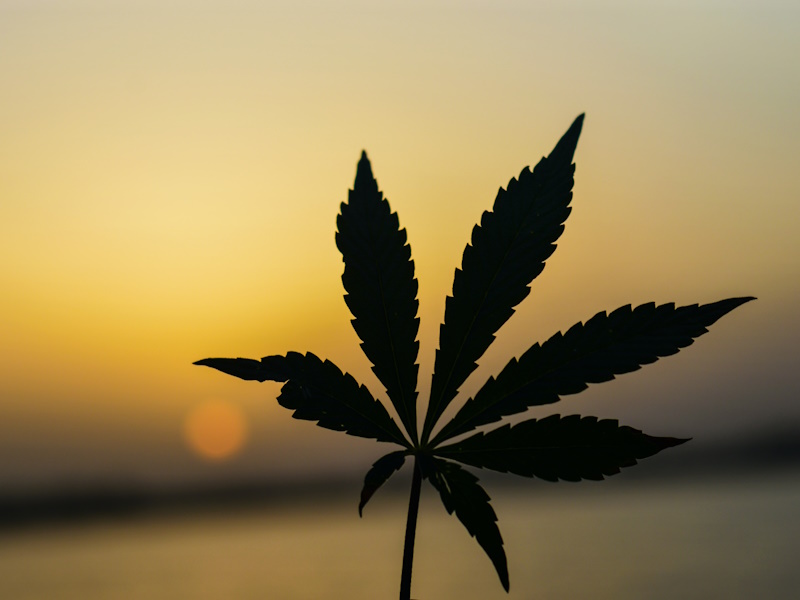
- HOME
- ABOUT US
- WHAT WE DO
- SUBSTANCE
USE PREVENTION - NUTRITION
EDUCATION - HEALTHY FOODS
FOR THE COMMUNITY
- SUBSTANCE
- HOW WE CAN HELP
- NEWS & EVENTS
- GET INVOLVED
Blog
June 25, 2024
Safety Tips for an Evolving Cannabis Market

If you’ve gone outside in Maine lately, you've likely seen a cannabis dispensary. Legal cannabis is part of our environment now, and a large variety of products and businesses have emerged in a relatively short amount of time. Our society has come to view cannabis and THC as more akin to legal products like alcohol and tobacco than illegal drugs like cocaine or heroin. But regulations on this market are new and continuously evolving. The landscape of retail cannabis in Maine is more complicated than it might appear at first glance yet more Mainers than ever before are using this substance.
At HLC, we work to educate our community about the risks and harms associated with cannabis, but we also understand that many people have good reasons for turning to this newly legal substance. We respect those reasons and want to ensure that cannabis consumers have good information about how to emphasize safety with this ever-evolving substance. Here are some tips for reducing the risks associated with cannabis use:
Don’t buy products online: Cannabis is legal in Maine, but only by licensed sellers. A recent federal law (2018 Farm Bill) allowed hemp-derived semi-synthetic THC products to be sold online pretty much anywhere. If you find yourself looking at THC products online, they are most likely to be one of these semi-synthetics, which are not well understood, and are manufactured under unregulated conditions. Best to stick with buying regular THC at your local cannabis shop.
Know your source: Even when buying in person, it’s best to know your provider and have a sense of what their products are. Most retailers can tell you where the cannabis was grown and in what conditions, and well as how the product was brought to market. Some supply chains are safer and more transparent than others.
Medical vs. adult use: Maine has three different types of dispensaries: state certified medical dispensaries, adult-use or recreational stores, and medical caregiver stores. The latter is the most common. It's also has less consumer safety oversight than recreational shops. This may seem backwards, but recreational cannabis is much more closely inspected for health hazards in the supply chain. A report by the Maine Office of Cannabis Policy recently found that many medicinal cannabis businesses failed product inspections for reasons like mold, bacteria, pesticides, foreign objects, and "filth". Whoever you buy from, make sure you trust your source and don’t be afraid to ask questions about the supply chain.
Dose matters: The emergence of legal retail has led to all kinds of new products from drinks and edibles to highly potent THC concentrates. These new products are stronger than anything we have ever seen. Adverse reactions to too much THC are increasingly common. If you are trying something new, make sure to start with just a little bit and increase slowly if you want to feel more.
Age matters: Studies show that cannabis impacts brain development in adolescents and teens. Casual weed smoking might not be a big deal for fully grown adults, but regular use at a young age disrupts the dopamine reward cycle and increases the likelihood of experiencing mental health challenges. Brain development continues into the late 20s, so even folks of a legal age should consider delaying use until later in adulthood.
Protect little ones and pets: Remember to store your cannabis products safely out of reach from children. Especially if it's a form of candy or baked treat, kids are going to want to try it. So might dogs or cats. Emergency room visits due to THC poisoning of children or adolescents have increased dramatically. Make sure your product is kept up and away form reach, preferably in locked container.
Don’t mix with other substances: THC doesn't always play nicely with other substances. Alcohol and THC amplify each other’s effect. Mixing weed and tobacco can increase the harm caused by smoking or vaping.
Setting matters: Driving on THC is just as dangerous as driving drunk, so make sure you use cannabis in a place where you can safely stay while under the influence. Don't operate any vehicles or heavy machinery while high. THC may feel different than alcohol, but it disrupts our coordination, senses, and judgement in the same ways. Also, remember that THC can cause feelings of anxiety and paranoia, so make sure you are in a place where you will be comfortable and safe before using.
Sticking to these guidelines will help reduce your risk of adverse experiences or accidents associated with cannabis use. Remember that not using THC is the only way to remove all risk. Frequent cannabis use causes short term memory loss, increased blood pressure, throat and lung damage when smoked or vaped, and many potential social consequences. Users have a right to be aware of these risks in a time when cannabis is being aggressively marketed as a harmless cure-all. But many people will use cannabis anyway, and they can do so in a way that prioritizes safety and minimizes risk.
Our local dispensaries are key partners in making sure that Maine’s retail environment is one that emphasizes consumer safety and prevents underage access. Our local shops here in Lincoln County have all signaled a commitment to supporting such an environment by implementing best practices to ensure compliance and health. Promoting an informed and safety-conscious consumer base is the other side of this valuable coin.
 MCD Global Health
MCD Global Health